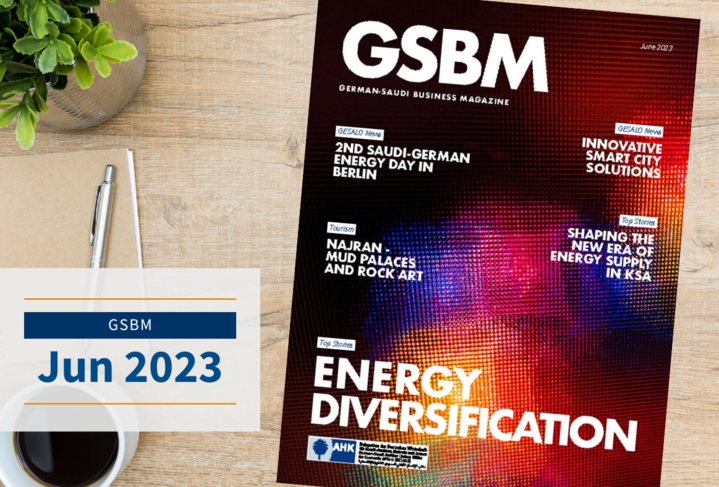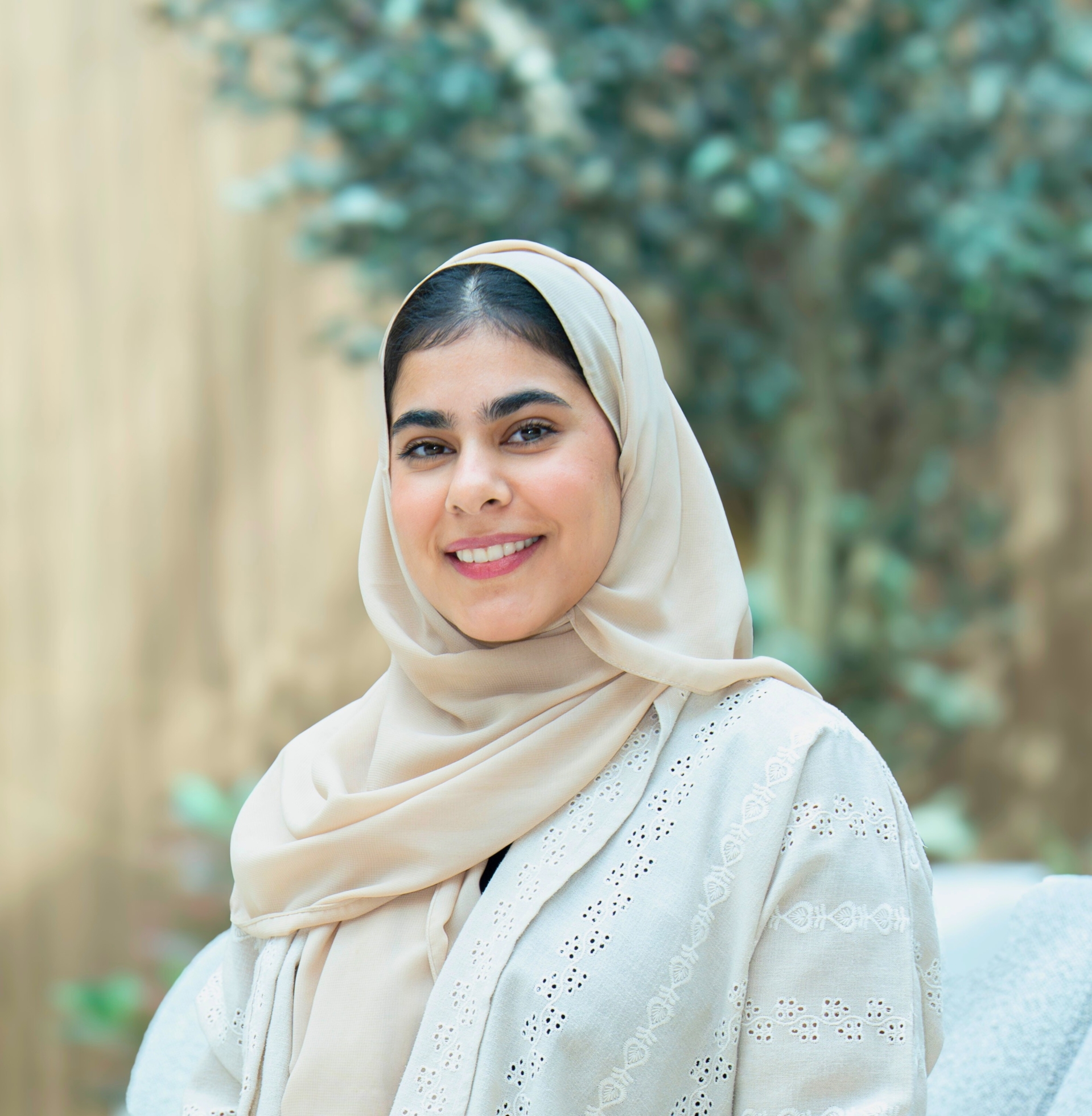
Saudi Arabia
The government has set targets for the circular economy, including an 81 percent recycling rate for municipal waste, a 60 percent recovery rate for construction waste, and an 85 percent recycling or treatment rate for hazardous industrial waste.
Initiatives Saudi Arabia
In addition, initiatives such as the Saudi Green Initiative aim to promote regional and global cooperation in the areas of renewable energy, nature conservation, and sustainable land use.
The Circular Carbon Economy (CCE) initiative drives a circular carbon economy. The aim is to reduce CO2 emissions, improve resource efficiency and increase the use of renewable energies.
Additionally, Saudi Arabia is seeking international expertise and partnerships to further advance its circular economy efforts. This offers potential business opportunities for German companies providing innovative solutions and technologies in the field of waste management.
Waste management in Saudi Arabia
Waste management in Saudi Arabia has gained importance over the past five years. According to the state's National Waste Management Center (NWMC), only 18 percent of waste will go to landfill by 2035. Recycling, composting, incineration, and other processes are said to account for the majority of waste recovery. The circular economy is expected to contribute $32 billion to the gross domestic product by 2035, reduce carbon emissions by 72 million tons and create 77,000 jobs. The NWMC is planning over 1,300 disposal and recycling companies by 2035.
The state-owned Saudi Investment Recycling Company (SIRC) finances the development of the recycling sector. SIRC is working on Waste-to-Energy (WtE) projects and plans to build WtE power plants by 2030.
Saudi Arabia is keen to increase investment and private investor participation in the waste sector. This includes investments in modern waste treatment facilities, recycling infrastructure, and green technologies, to recycle waste from landfills and increase the proportion of recyclable materials.
Establishment of a circular economy
Renewable energy sources are an important part of the planned establishment of a circular economy in the Kingdom of Saudi Arabia. Among other things, the waste management sector plays a key role in achieving set goals.
Development targets
The following targets have been set for the development of the circular economy:
- 81 percent of municipal waste is to be recycled and up to 19 percent incinerated in waste-to-energy (WtE) plants;
- 60 percent of construction waste is to be recycled; and
- 85 percent of industrial hazardous waste is to be recycled or reprocessed.
Collaboration with international recycling companies
Riyadh alone currently generates approximately 3.8m tons of municipal waste annually, and the amount could double by 2035. Presently, over 95 percent of Riyadh's municipal waste is sent to landfills. Vision 2030 aims to reduce this figure to 0% by 2025 and instead establish a circular system.
The Saudi Investment Recycling Company (SIRC), as a subsidiary of the Public Investment Fund (PIF), is expected to achieve this goal in collaboration with international recycling companies. SIRC is looking for international partners to build such a circular waste system for Riyadh.
Agricultural sector in the Kingdom of Saudi Arabia
Moreover, Saudi Arabia has a large agricultural sector that contributes SAR 53 billion to the GDP each year. It focuses on increasing efficiency as part of Saudi Arabia's Vision 2030.
Currently, agricultural waste is generally not recycled, resulting in the loss of significant amounts of potential energy generation. In addition, the disposal of untreated waste causes damage to the environment and businesses incur costs for unnecessary storage.
Megaprojects initiated under Vision 2030, such as the Red Sea Project, Amaala and Neom, plan to invest in sustainable and innovative infrastructure solutions, including waste, and thus are potential cooperation partners. The large company Aramco also expresses great interest in innovative solutions for waste reduction.
Water management in Saudi Arabia
The country has limited reserves of non-renewable groundwater that are increasingly being depleted. The dry climatic conditions together with the high per capita water requirement (265l/day) and agricultural requirements (84%) make the water supply difficult. To cover the high water demand, Saudi Arabia increasingly uses seawater desalination plants. For example, the Saline Water Conversion Cooperation is building a new water desalination plant in Al-Khobar with an investment volume of USD 800 million by 2030.
The production of freshwater through seawater desalination is energy- and cost-intensive. That is why the kingdom is focusing on the expansion of renewable energies for the operation of the systems. The country is also investing in water recycling technologies to use wastewater for agriculture and greening. The Ministry of Environment, Water and Agriculture (MEWA) estimates the need for investment in water infrastructure at USD 5 billion over the next 20 years.
MEWA is pushing ahead with the construction of sewage treatment plants, such as the plant in Al Jouf Province. The construction costs 70 million USD and will be completed by 2025. The Saudi Water Partnerships Company (SWPC), responsible for tendering and awarding PPP (private-public partnerships) wastewater projects and entering into long-term water offtake agreements, is investing USD 820 million in the construction of a water pipeline in Ras Al Khair by 2026. The National Water Company, a PIF company, is building the $500 million Arana Wastewater Treatment Plant in Makkah Province by 2026.

Bahrain
Bahrain has also made important waste and water management progress in recent years. The country has introduced strict regulations to reduce the environmental impact of waste and wastewater.
Vision 2030
As part of its Vision 2030, neighboring Bahrain also committed to reducing the country's dependency on oil and investing in renewable energies (solar energy, wind energy, wastewater and bioenergy from biowaste) back in 2008.
While several pilot projects have already started in 2014, mainly in solar and wind energy, there is great need for technologies on sustainable biogenic residual and waste management.
- According to the Ministry of Labor, Urban Planning and Municipalities in Bahrain, more than 1.7 million tons of waste are generated each year which could be used to generate electricity and reduce greenhouse gas emissions instead of being landfilled.
- Organic material, most of which is food waste, accounts for 60% of total municipal waste. All municipal waste in Bahrain currently ends up in the Asker landfill.
Waste and Water management
For example, a waste separation system was introduced, and modern waste dumps were set up. In addition, the country has launched programs to promote recycling and raise public awareness of environmental issues. Regarding water supply, Bahrain has also taken important measures. New desalination plants were built and the country made great efforts to improve water efficiency in agriculture.
Waste to generate electricity
Like Saudi Arabia, Bahrain's waste sector is interesting for German manufacturers of WtE plants. According to the Bahrain Ministry of Labor, Urban Planning and Communities, more than 1.7 million tons of solid waste is generated each year that could not be landfilled but used to generate electricity and reduce greenhouse gas emissions. Organic matter, which is mainly food waste, accounts for 60% of all municipal waste. All municipal waste in Bahrain currently ends up at the Asker landfill, which has a total area of 3.1 meters and a depth of between 10 and 15 meters.
Saudi Delegation to IFAT Eurasia trade fair | 2023
GESALO travelled to the International Trade Fair for Environmental Technologies together with a saudi arabian delegation...
Read full article
GSBM June Edition 2023 | Topic: Energy
GESALO facilitated trips with the Ministry of Energy, the Ministry of Investment and the National Industrial Development...
Read full article
Memorandum of Understanding on German-Saudi hydrogen cooperation
An initiative of the Federal Ministry of Economic Affairs and Energy (BMWi)
Read full article
Get in touch
-
Mrs. Najah Alkutbi
Head of Market Entry - DEinternational DEinternational
+966 55 703 0376 / +966 920005863 Ext.: 107 alkutbi@ahk-arabia.com saudiarabien.ahk.de -
Mrs. Rawabi Basyouni
Head of German Desk Western Province DEinternational
+966 53 929 0004 / +966 122398000 Ext.: 8197 basyouni@ahk-arabia.com saudiarabien.ahk.de -
Ms. Fatima Bakhsh
Head of German Desk in Eastern Province and Bahrain DE international
+966 55 930 0150 bakhsh@ahk-arabia.com saudiarabien.ahk.de





